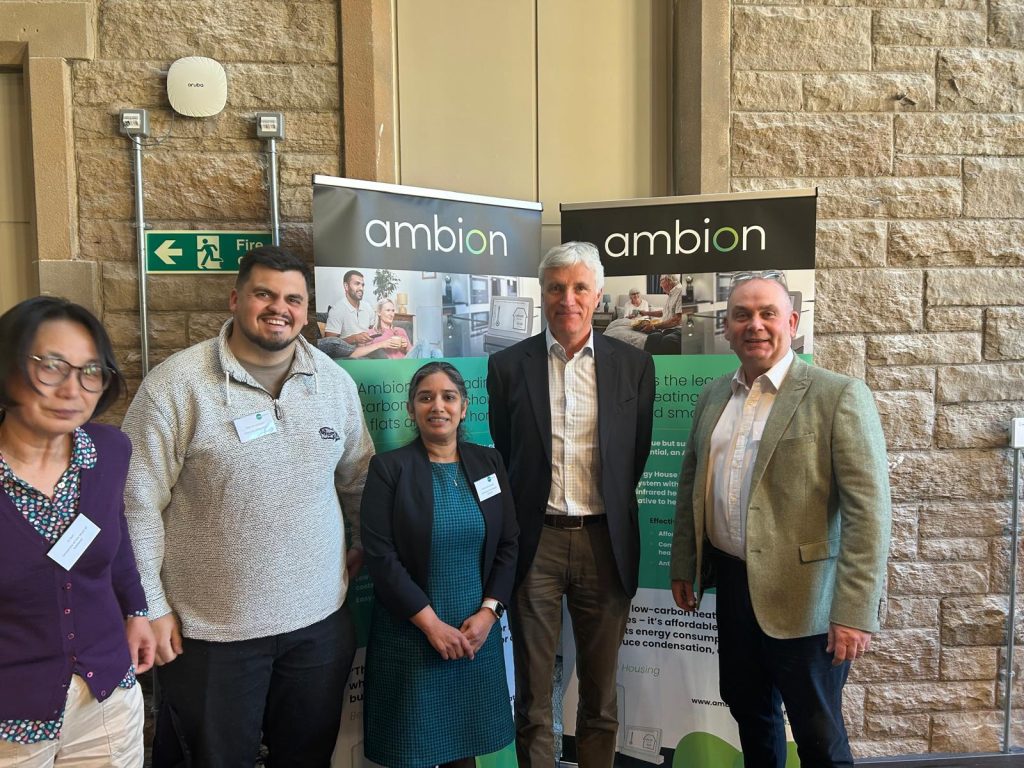
Dr. Li Sun – Expert in energy systems and thermal management
Dr. Sam Ahmadzadeh – Researcher in advanced sensor applications
Oliver Baker – CEO Ambion Heating
Denis Harley – Scotland BDM Ambion Heating
Ambion is proud to be part of the collaborative effort driving low-carbon heating solutions for high density buildings. Our Business Development Manager for Scotland, Denis Harley, talks about how Ambion’s involvement in the newly launched initiative Centre for Net Zero High Density Buildings (CeNZ-HighDB) is key to this project.
Of 80,000 properties throughout Glasgow, 73% are described as flatted developments. This is probably the largest proportion throughout the UK.
And yet, there’s no agreed consensus as to the most appropriate technologies to use in these house-types.
How is the initiative resolving this challenge?
Professor Sean Smith started off the CeNZ-HighDB. He applied for funding to carry out several pilot installations and perform critical lab testing on different domestic heating scenarios. The findings will be collated in a concise report to market on what academics would suggest as a clean energy solution for different housing types.
I reached out to Sean and we met with the group back in February. They engaged with us in several meetings and they want to embrace the Ambion technology as part of the solution. We’ve since been holding meetings and discussions with their Working Group Two, which focuses on heating and cooling in buildings.
There’s quite a systematic timeline to work in. The first stage is getting the products tested. The next thing is determining the types of properties to look at and interacting with the tenants. They’ve identified three blocks in East Ayrshire and we think we’ll have a live project well underway within 12 weeks. We’re the only outside manufacturer on the advisory board for the working group, which is fantastic.
How will this help reach net zero goals?
The biggest challenge in our market is people understanding how a product works and getting it seen as a viable solution to achieve clean heating in housing stock. It’s a particularly huge learning curve for us because no one has heard of infrared panels.
Academics are now embracing our technology and understanding the controllability of what we’ve designed. The way the product can capture data is something that sits really strongly with them. The control unit gathers live data of the installation’s performance, and with that data, we can present how much they’ve saved. They love that level of access.
Once Ambion panels are endorsed by academics, they’re more likely to be considered a viable solution by the government. This will make our product more attractive to housing providers and mean we’re more respected in the market. In short, we can become part of a more efficient domestic heating system and a clean solution for high-density properties.
We feel privileged to be working with such a well-respected institution within Scotland and humbled by the fact they’ve chosen Ambion to be part of that high density solution into the market. We believe this project is going to resonate and make a difference throughout the rest of the UK.